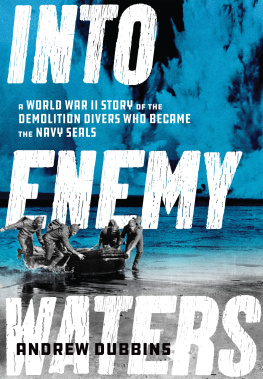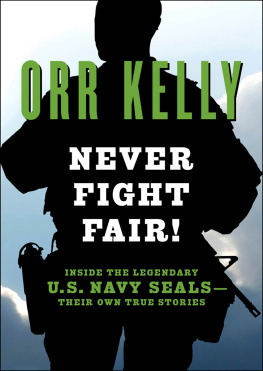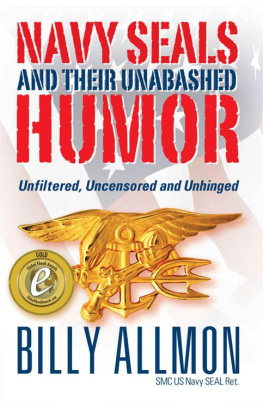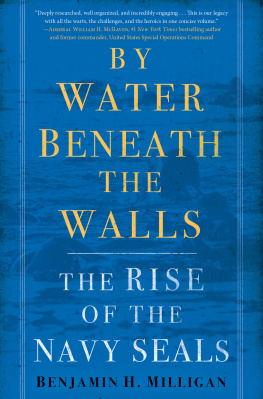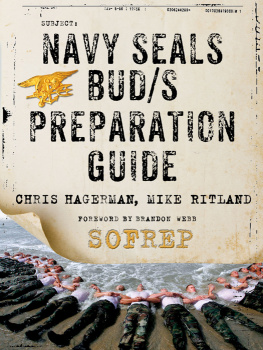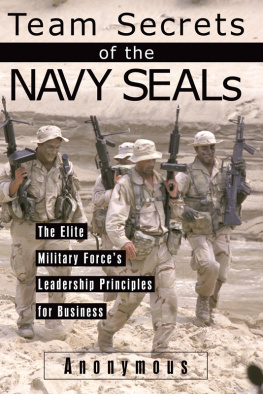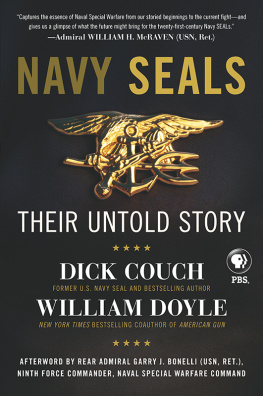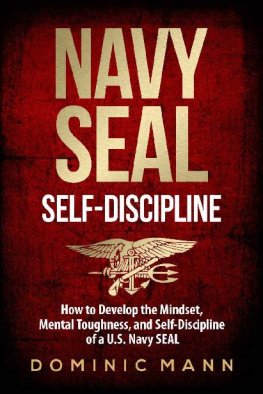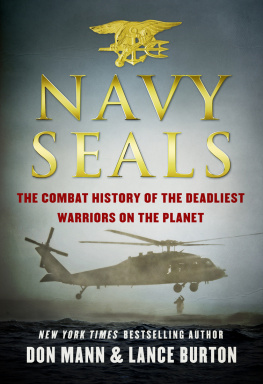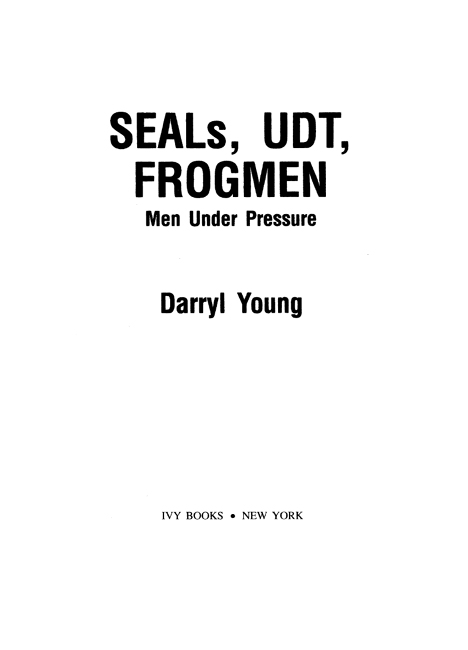The enemy fire became so intense that Kinnards group was pinned to the shoreline, unable to return fire. Suddenly, Kinnard was seized by the neck from behind and pulled into the water. For what seemed like hours, he struggled and thrashed to get free. The man, a Vietnamese as big as himself, held a pistol in one hand and swore constantly in articulate English as he fought. Finally Kinnard found firm footing on the shallow bottom and got a grip around the other mans neck and pistol arm.
Slowly, Kinnard forced him under the water, and tried to pry the gun from his hand. The man, weakened from lack of oxygen, relinquished it. Then Kinnard pulled the NVAs head out of the water, held the pistol to his forehead, and shot him twice in the brain.
Ivy Books
Published by Ballantine Books
Copyright 1994 by Darryl Young
All rights reserved under International and Pan-American Copyright Conventions. Published in the United States of America by Ballantine Books, a division of Random House, Inc., New York, and simultaneously in Canada by Random House of Canada Limited, Toronto.
Library of Congress Catalog Card Number: 94-96067
ISBN 0-345-47167-9
eBook ISBN: 978-0-8041-5121-4
v3.1
It is often observable, that, in vessels of all kinds, the men who talk the most sailor lingo are the least sailor-like in reality. On the other hand, when not actively engaged in his vocation, you would take the best specimen of a seaman for a landsman. When you see a fellow yawing about the docks like a homeward-bound Indiaman, a long Commodores pennant of black ribbon flying from his mast-head, and fetching up a grog-shop with a slew of his hull, as if an Admiral were coming alongside a three-decker in his barge; you may put that man down for what man-of-wars-men call a damn-my-eyestar, that is, a humbug. And many damn-my-eyes humbugs there are in this man-of-war world of ours.
The Sea Witch
by Alexander Liang
Contents
Prologue
After securing thirty-five to forty thousand words for this manuscript, I began to wonder why the hell I had even begun the project; I had already burned damn near a half a manuscript in the wood stove after abandoning it early-on because my editor was a little slow off the mark, then decided to begin all over again. And I had this attitude, Why do today what I can do after I go fishin? When I reached fifty to sixty thousand words, I was nearly back to where I had been at the wood stove. By then I had become dedicated again but still had questions as to why I was spending my prime-time at the computer instead of fishin. Then, when the computer word-count reached seventy thousand I fell back, regrouped, and tried to see just what I had collected here, it hit me like a slap in the face. But, the manuscript was still far from finished and still taking me away from my favorite pastime. But, like ascending from a deep dive, I was beginning to see the light as I neared the surface.
On a roll by then, except for an occasional fishin trip, I couldnt stop. I even found ways to interview some Teammates while out on the lakes or floating the rivers of Western Montana. Because of the beautiful surroundings, this not only made my interviews more interesting and stress free but also kept up my fishin habit that is required for my survival on this planet.
The events recorded on these pages, were experienced by my comrades then described or presented to me in personal interviews, phone conversations, or personal documents by the individuals themselves. All the men whose exploits are described within these pages were either members of the United States Navys Underwater Demolition Teams or SEAL Team, in many cases both.
To fully, or even partially understand the functions that the Underwater Demolition Teams and SEAL teams (UDT/SEAL) have fulfilled throughout recent U.S. military history, one must attempt to put oneself in the mind of a Navy Frogman. The experiences recorded here will help you do exactly that.
Giving the reader a little knowledge of the flexibility and variety of operational duties that the Teams wereand areinvolved in, straight from the men who experienced them, will also help give you an understanding of the way the Navys Frogmen operated. It should also give the reader an idea of a few of the UDT/SEAL capabilities. These stories just touch a fraction of the overall operational picture of Frogman history. There were many stories I dared not, or could notlegallyprint.
Some teammates keep their experiences to themselves. I respect their privacy. Other teammates welcomed my approach and appreciated the fact that someone else was interested in that important part of their lives. Asking my comrades to relate their experiences is one of the most difficult feats Ive ever had to do, but I felt that it is very important for our families, friends, teammates, and the public in general to read about the Navys Frogmen performing their duties and living their lives at that most important time of their sojourn on Earth. Whether it was liberty in Olongapo City, reconning the beaches of Guam, or a fire-fight in the Delta, what better way to relate the story than in the words of the men who have experienced the encounters.
Opening up a letter from a Teammate with whom I havent been in contact for more than twenty years, a letter in which he related a personal experience for this manuscript was a very emotional occasion. Other interviews, letters and notes made me laugh till my sides ached. The sharing of experiences was good for all of us, as only a Frogman can relate to a Frogmanor a Frogmans nights in Olongapo City
After reading accounts in this book, some people may think that UDT/SEAL training is cruel and inhumane and should be reorganized. They may ask, Why does this training have to be so difficult? Why do these men have to go through with this? The proper answer is simple to the men who Have Been There!
Number Onebecause of that difficult training, we had an outstanding survival record in combat. It helped us in times of need, in life-and-death situations; and improved our chances of returning home alive.
Number Twowe never had to go through the training; it was purely our choice. We were all volunteers.
Number Threethere seems to be a growing problem with Wish-They-Were, Want-to-Bes, individuals claiming not only to have been members of the UDT/SEAL Teams, but other Special Operations Forces as well. The stories within the pages of this manuscript are not the contrived experiences of Want-to-Bes who for some reason have to fabricate their pasts.
These individuals go through life with poor Visibility, with their swim fins on the wrong feet. Theyre always having to clear their face mask of the fog thats placed behind it while they spread a false representation of the way it really was. By spreading false suppositions to anyone who will listen, such people give those of us who have Been There bad names. The sad part is, the people who listen have no idea if a Want-to-Be is fabricating a story or not.
The pain we endured in UDT/SEAL training to qualify for the Teams, the blood we shed in combat on foreign soil, and, most of all, the sacrifices made by our fallen comrades, force us to permit no one the right to claim he has Been There when in fact he has not.
Once he is identified, the situation can be very embarrassing to the phony. Sooner or later, especially when confronted by


